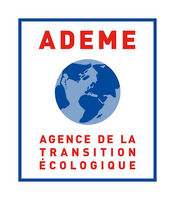Search eceee proceedings
Challenges of heat pumps coupled with building to make them a flexibility tool for the electricity network
Panel: 8. Innovations in products, systems and building technologies
This is a peer-reviewed paper.
Authors:
Nicolas Renté, NIBE, France
Kevin Attonaty, EDF
Laure Meljac, NIBE
Cong-Toan Tran, Mines ParisTech
Pascal Stabat, Mines ParisTech
Abstract
The EU is setting increasingly ambitious energy and climate targets and is aiming at carbon neutrality for buildings by 2050. In the building sector, this objective implies restrictions on the use of fossil fuels in favour of, among others, electricity. Buildings will then become an interesting tool for grid flexibility, particularly to absorb and store electricity from renewable sources. Furthermore, heat pumps, whose market is booming, constitute a very efficient electrical heating technology and will become a pillar of the electrification of buildings in the coming years. Heat pumps will be a key component of buildings, used as a tool for balancing the grid.
This study presents a comprehensive literature review on flexibility potential. It constitutes the first step of research works aiming to develop a tool dedicated to the flexibility of heat pumps in buildings that will optimize and control the entire heat pump and storage system according to the characteristics of a building to meet a demand for flexibility from the grid.
This literature review shows that heat pumps can offer basic flexibility functionalities such as self-consumption of locally produced renewable electricity and adaptation to electricity tariffs, and can receive single orders from the grid. This study also highlights that, due to the wide variety of configurations and expectations, performance indicators are numerous but not always comparable and not suitable for an objective of optimizing response to various grid orders. In addition, we propose an overview of the different categories of controller addressing flexibility. This study concludes on the future works to be carried out to make the heat pump an efficient flexibility tool for balancing the grid.
Downloads
Download this presentation as pdf: 8-007-22_Rente_pres.pdf
Download this paper as pdf: 8-007-22_Rente.pdf
Panels of
1. Dynamics of consumption: less is more?
2. Efficiency and beyond: innovative energy demand policies
3. Policy, finance and governance
4. Monitoring and evaluation for a wise, just and inclusive transition
5. Towards sustainable and resilient communities
6. Energy-efficient and low-carbon mobility for all
7. Policies and programmes for better buildings
8. Innovations in products, systems and building technologies



























